The Silent Killer CEOs & Leaders Must Address: How Vulnerability Can Save Your Leadership

In the fast-paced world of leadership, where every decision impacts not just the bottom line but also the lives and well-being of hundreds or even thousands of people, one silent threat looms larger than most: unspoken and unacknowledged stress. It’s the pressure that comes with the territory – the long hours, the high stakes, and the responsibility to be the pillar of strength for your entire organisation. But what happens when that pillar starts to crumble?
The Hidden Cost of Unspoken Pressure
As a CEO or leader, you’re expected to project confidence, strength, and vision. You are the person others look up to during crises, the one who sets the tone for the entire company culture. But this expectation often comes with a heavy, silent burden. Research shows that executives experience higher levels of stress, anxiety, and burnout compared to other roles in an organisation. Yet, many in leadership positions suffer in silence, fearing that admitting vulnerability could be perceived as weakness.
What is often misunderstood is that this approach not only harms you as a leader but also your organization. The reality is that unspoken stress and unresolved emotional challenges can affect decision-making, reduce productivity, and eventually impact the company’s success. The consequences of not addressing these issues can be dire—not just for you personally, but for everyone depending on your leadership.
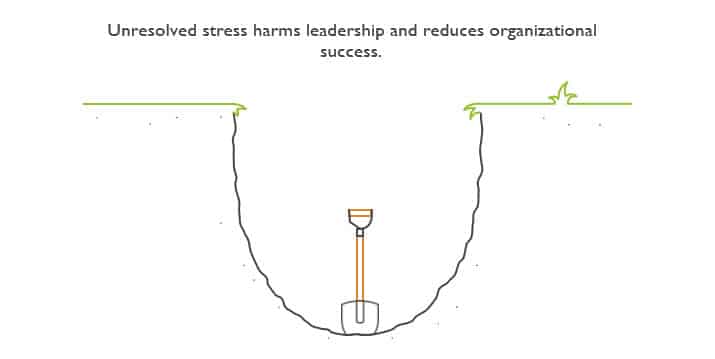
Vulnerability: The Game-Changer CEOs Need to Embrace
The key to breaking this cycle is vulnerability. In leadership, vulnerability is often framed as a weakness; however, embracing it can be a profound act of strength. CEOs who openly acknowledge their struggles, both mentally and emotionally, often create an environment that fosters trust and loyalty. When you, as a leader, show your human side, you allow your team to do the same, promoting a culture where stress, burnout, and anxiety can be addressed openly rather than left to fester.
By speaking about your challenges, you model resilience and the importance of seeking support. It’s a message that says, “It’s okay not to have all the answers; it’s okay to struggle sometimes.” This encourages others in the organization to be proactive about their mental health and creates a supportive and transparent workplace culture.
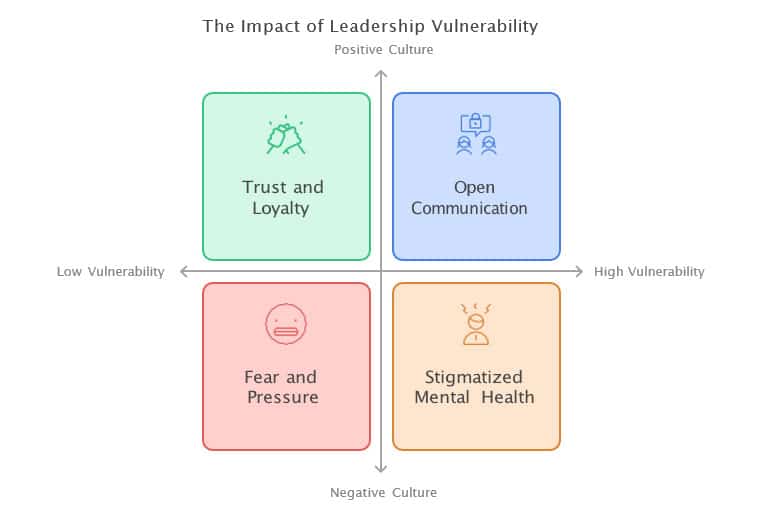
The Leadership Benefits of Speaking Up
A healthy work culture starts at the top. Leaders who normalize conversations about mental health and well-being send a powerful message. It creates a ripple effect where employees feel empowered to express their own struggles without fear of judgment. When CEOs take the lead in addressing their mental health, they foster an environment where people work not out of fear or pressure but because they feel valued and supported.
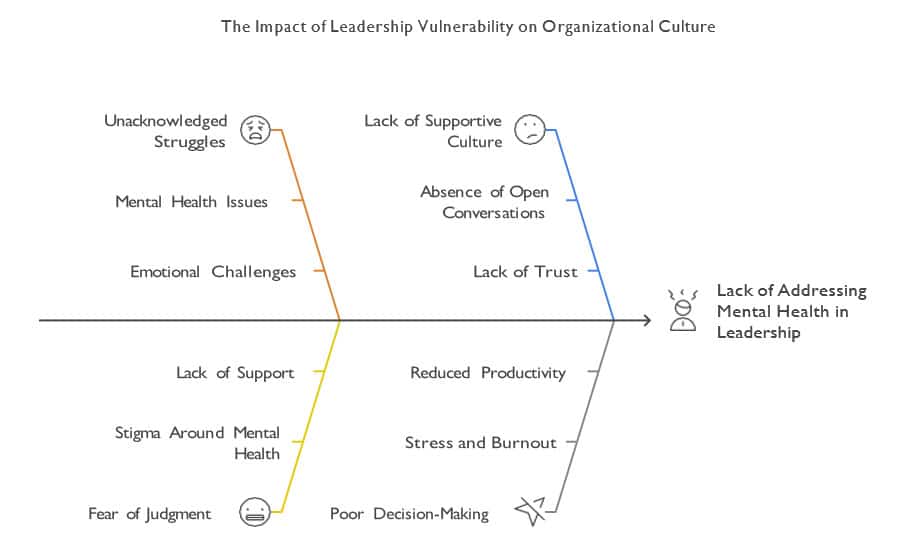
This approach benefits the company in tangible ways:
- Improved Decision-Making: When leaders are mentally and emotionally balanced, they are better equipped to make sound decisions, manage risks effectively, and navigate crises with clarity.
- Increased Employee Engagement: A transparent and empathetic culture increases morale and job satisfaction, leading to higher employee retention and productivity.
- Stronger Company Reputation: In today’s socially-conscious world, companies that prioritise mental well-being—starting with their leaders—are often seen as progressive and attractive to top talent.
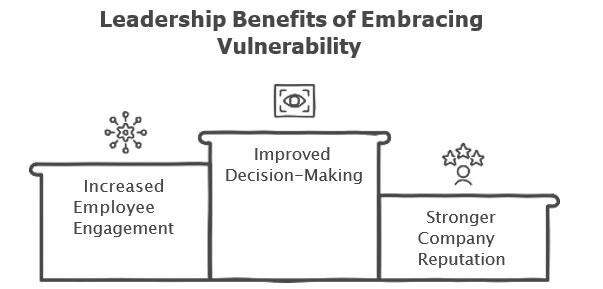
Steps for Leaders to Begin the Healing Process
If you’re a CEO or in a leadership role, it’s crucial to prioritize your mental health as a key element of your leadership strategy. Here’s how:
- Acknowledge the Pressure: Accept that the demands of your role come with unique Normalise recognising and articulating when things feel overwhelming.
- Seek Support: Whether through professional therapy, executive coaching, or peer groups, find a safe space where you can discuss the pressures you face without judgment.
- Create a Mental Health Policy for the Company: Lead by example by implementing comprehensive mental health programs and resources for employees. This shows that you take well-being seriously, not just for your team but also for yourself.
- Encourage Open Conversations: Foster an environment where talking about stress and mental health is not stigmatized. Share your experiences openly in appropriate settings, showing that even top leaders can and should seek help when needed.
- Model Self-Care: Demonstrate the importance of work-life balance, regular exercise, and mindfulness practices. If you make these a priority, your team will follow suit.
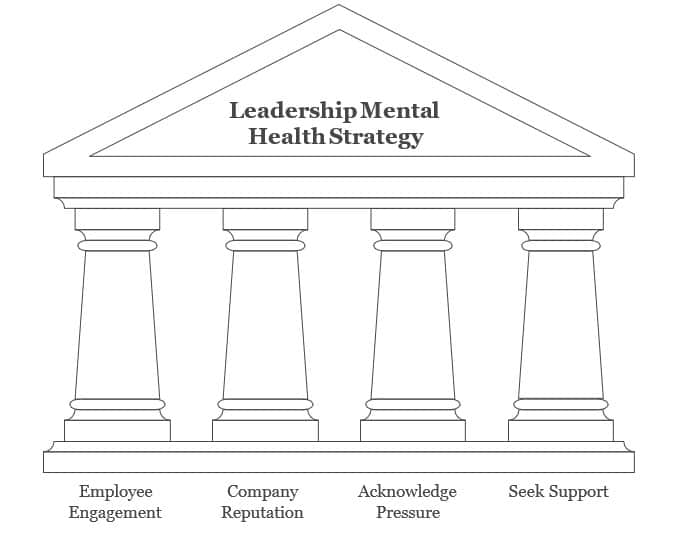
The New Paradigm of Leadership
In today’s relentless and unpredictable business landscape, where disruption is the norm and pressure is constant, the leaders who will not only survive but thrive are those who recognise a fundamental truth: vulnerability is not a liability; it is a strategic advantage.
CEOs and executives who have the courage to embrace and express their struggles are not showing weakness; they are demonstrating resilience, authenticity, and vision. They signal to their teams that it’s possible to lead with both strength and humanity, creating a culture of trust, openness, and innovation.
By acknowledging the mental and emotional toll that leadership can take, and by prioritising their own well-being, these leaders set a powerful precedent. They show that true leadership is not about being impervious but about being adaptable and attuned to the reality of human experience. Such leaders understand that when they take steps to protect their mental health, they not only safeguard their own capacity to make clear, effective decisions but also enhance the resilience and performance of their organisations. When CEOs model this behavior, they foster an environment where employees feel valued, seen, and motivated to contribute their best—creating an organization that is more agile, cohesive, and ready to take on challenges.
This is more than a shift in perspective; it’s a transformation in how we define strength in leadership. For too long, the silent killer – unaddressed stress, anxiety, and burnout – has been a hidden epidemic among leaders, perpetuated by a culture of silence and stigma. But the cost of inaction is far too great. When leaders choose not to confront this reality, they risk not only their own health but the very future of their organizations.
It’s time to change the narrative. This silent killer that has plagued leadership for so long can only be dismantled when leaders speak up, take ownership of their mental well-being, and actively foster environments where vulnerability is met with support, not judgment. It’s about creating a new paradigm where openness and authenticity are synonymous with strength and leadership excellence.
The question is: Are you ready to lead the change? Are you prepared to redefine what it means to be a powerful, effective, and compassionate leader in today’s world? The choice is yours – embrace vulnerability, and in doing so, unlock the full potential of your leadership and the collective strength of your organisation.
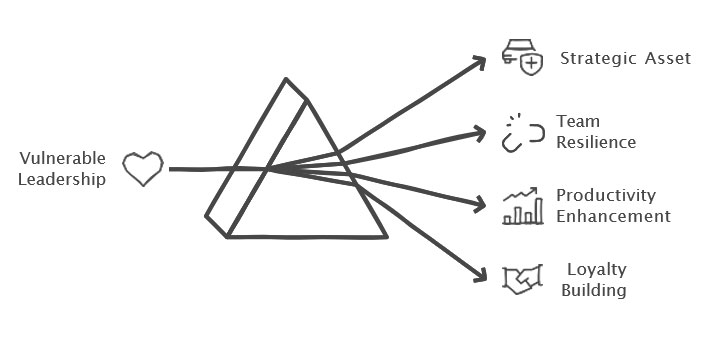
Written by Anu Verma.
Have you read?
World’s Best Countries For Retirement.
World’s Best Countries For Women.
World’s Best Countries To Visit In Your Lifetime.
US States With the Largest Gender Pay Gaps.
CEOs who have secured the most funding during their tenure in companies in each US state.
Bring the best of the CEOWORLD magazine's global journalism to audiences in the United States and around the world. - Add CEOWORLD magazine to your Google News feed.
Follow CEOWORLD magazine headlines on: Google News, LinkedIn, Twitter, and Facebook.
Copyright 2025 The CEOWORLD magazine. All rights reserved. This material (and any extract from it) must not be copied, redistributed or placed on any website, without CEOWORLD magazine' prior written consent. For media queries, please contact: info@ceoworld.biz








